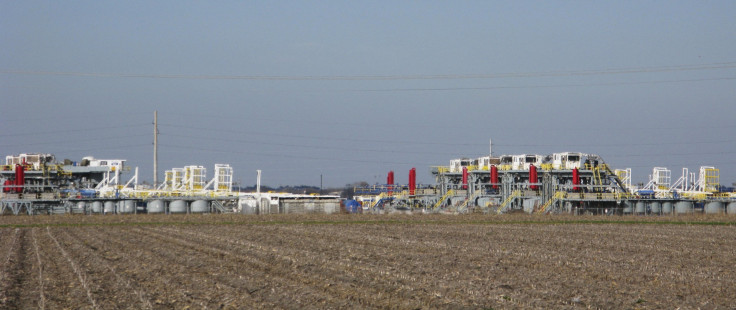Asian Shares Rise As Oil Rally Lifts US Stocks, Investors Await Singapore, Hong Kong Data

Asian stocks rose early Tuesday after crude oil rallied, lifting U.S. share prices. Analysts expect stocks will continue to track low and volatile oil prices.
Singapore will report on January inflation later Tuesday, with analysts estimating little change, given lower oil prices and the weak global economy offsetting upward pressures, the Straits Times said. Hong Kong will also report on inflation, along with employment.
Moving higher were Japan’s Nikkei 225 by 0.9 percent, South Korea’s KOSPI by 0.2 percent and Singapore’s STI by 0.1 percent. Australia’s ASX 200 was little changed. Hong Kong’s Hang Seng futures pointed to a 0.7 percent gain.
In the U.S., the Dow Jones industrial average, Standard & Poor’s 500 index and Nasdaq composite all rose between 1.4 percent and 1.5 percent.
The U.S. crude oil benchmark jumped 6 percent to $31.48 a barrel and its global counterpart rose 5 percent to $34.69 a barrel amid reports that low prices had resulted in a ninth straight week of U.S. oil rig declines, bringing the number of U.S. oil rigs to their lowest level since 2009, and that U.S. shale oil production could fall by 600,000 barrels per day this year and more next year.
For months, crude and stocks have mostly moved in tandem as lower oil prices, on the way down from more than $100 a barrel in mid-2014, hit the share prices of energy companies and the many firms that supply them. Higher crude prices offer relief to these outfits. Analysts expect this relationship to continue.
“With no immediate circuit breaker on the horizon to provide clearer trends, and the potential for headlines to continue to drive overall sentiment, the risk is that we could be stuck in the same holding pattern in six to 12 months’ time from now,” said Mark Smith, a senior economist at ANZ Bank New Zealand Ltd. in Auckland, Bloomberg News reported.
In addition, investors remain worried about China’s economic slowdown, a big drag on both oil prices and the global economy. The slowdown has resulted in underutilized factories, which have hurt companies there and abroad. Meanwhile, the overbuilding of homes has prompted the government to cut taxes on property purchases to help developers.
“We’re still going to have considerations about heavily indebted energy companies going into default,” said Kurt Brunner, portfolio manager at the Swarthmore Group in Philadelphia, Reuters reported. “You still have concerns about China and where growth goes there, and that’s why you’re still going to have this volatility.”
© Copyright IBTimes 2024. All rights reserved.











